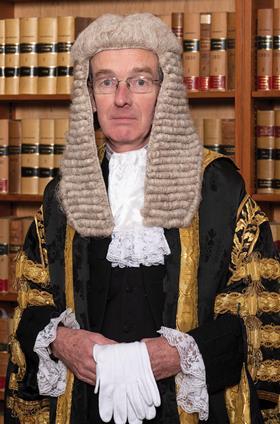The president of the family division has issued fresh guidance to tighten up procedures in public law cases and stop the volume of hearings spiralling out of control.
Despite an increase in judicial resources over the past two years, Sir Andrew McFarlane said the number of concluded cases in private and public law has not fallen and the number of hearings held before a case concludes has increased.
‘A very experienced childcare solicitor recently described to me how busy she was. The busyness was not because she had more cases, it was simply due to the fact that none of the cases that she had ever seemed to conclude,’ McFarlane said. ‘That experience, which I suspect is shared by many, fits with the “more hearings per case” data that I have described. Whilst this may have become the common experience, it must not be accepted as the norm for the future.’

The national average for the number of hearings per public law case is 6.2 – up from 5.8 in 2019/20 and 5.2 in 2016/17. Public law cases are required to conclude within 26 weeks. However, the average length of a public law case between July and September last year was 45 weeks, up from 38.5 weeks in 2020 and 28.2 weeks in 2017.
McFarlane pointed out that if a region had 3,000 public law cases a year, a 0.5 increase in hearings per case would result in an additional 1,500 hearings being listed.
New guidance, entitled ‘Make Every Hearing Count’, states that public law cases must be confined to the case management, issues resolution and final hearings.
McFarlane understood judges’ desire ‘to manage every element of the future care plan’ but said they must narrow their focus on the core issue of whether the child is to live with parents, another family member or friend, or be placed under the local authority’s care.
For effective case management, local authorities should outline what they seek to prove in ‘short and focused’ thresholds. Case management hearings should be timetabled to give parents a ‘realistic opportunity’ to meet their lawyers and respond substantively to the threshold before the hearing. Applications for independent social workers or psychological assessments should be avoided unless they are required to help the court resolve proceedings justly.
McFarlane said the aim of the guidance was not to pile on more work on practitioners but remove unnecessary time and work from each case.



























1 Reader's comment